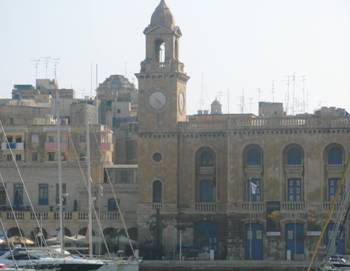Culture and heritage
The city of Valetta is a World Heritage Site. This means it is protected and its historical importance is recognised.
‘The capital of Malta is inextricably linked to the history of the military and charitable Order of St John of Jerusalem. It was ruled successively by the Phoenicians, Greeks, Carthaginians, Romans, Byzantines, Arabs and the Order of the Knights of St John. Valletta’s 320 monuments, all within an area of 55 ha, make it one of the most concentrated historic areas in the world’. (UNESCO)

Malta has a long and complex history and the islands have been ruled by many nations in the past. These peoples have left behind a wealth of historic buildings such as temples and churches as well as forts and other military buildings.
Malta has perhaps not made enough of its history and culture in the past and has relied too heavily on ‘sun, sea and sand’ package holiday tourism. More recently the Maltese government has begun to develop more of the important cultural sites into attractions.
Many of the people of Malta follow the Catholic religion. Unlike many tourist destinations, Malta respects Sunday and many shops do not open to allow people to go to church. Every village and town has a large church of which local people are proud. There is a strong sense of community amongst the people of Malta and they are proud of their independence.

Activity 7
The Maltese people have remained faithful to their traditions and have their own culture and national language, Malti. English is widely spoken by nearly all of the local people.
